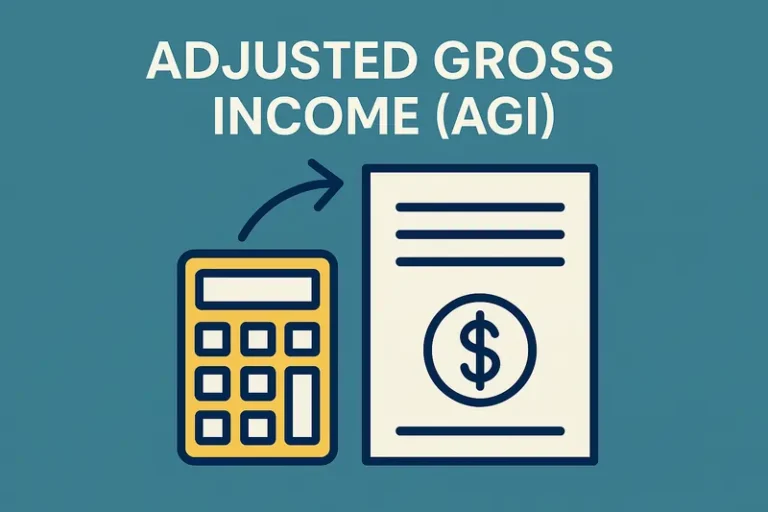What Percentage of CPAs Are Latino? Exploring Diversity in the Accounting Profession
The accounting profession is one of the most vital industries in today’s financial world. Certified Public Accountants (CPAs) play a critical role in ensuring the financial health of businesses, government organizations, and individuals alike. However, despite the significance of CPAs in our economy, the profession has historically been dominated by certain demographics. One question that has become increasingly relevant in recent years is: What percentage of CPAs are Latino?
The answer to this question is important not only from a diversity perspective but also because it touches on broader issues like ethnic representation, the underrepresentation of minorities in professional fields, and the push for greater inclusivity in the workforce. This blog will take a deep dive into the topic, examining the current state of Latino representation in the CPA profession, discussing key challenges, and looking at where things might be heading in the future.
Understanding the Current Demographics of CPAs
Before diving into the specific percentage of Latino CPAs, it’s essential to have an understanding of the current landscape of the profession. According to the American Institute of CPAs (AICPA), there were over 650,000 CPAs in the U.S. in 2023. However, the ethnic breakdown of this number reveals that CPAs from underrepresented groups, particularly Latinos, make up a much smaller proportion of this workforce.
The most recent data suggests that only about 8-9% of all CPAs in the U.S. are of Latino or Hispanic origin. While this number represents a significant increase from previous decades, the proportion of Latino CPAs still lags behind the growing percentage of Latinos in the general U.S. population, which now stands at over 18%.
Why Is There a Low Percentage of Latino CPAs?
The relatively low representation of Latinos in the CPA profession is a result of multiple factors, including historical, social, and economic barriers. Historically, many Latino families have faced significant socio-economic challenges that have limited access to higher education and professional opportunities. Accounting, with its rigorous education and certification requirements, has often been viewed as an inaccessible career path for many in these communities.
1. Access to Education:
Many Latino students face barriers in accessing higher education due to financial constraints, lack of mentorship, and insufficient exposure to professions like accounting during their primary and secondary schooling. Additionally, the cost of obtaining a CPA license—which requires passing the Uniform CPA Examination and meeting specific educational and experience requirements—can be prohibitive for many.
2. Lack of Representation and Mentorship:
Another factor contributing to the underrepresentation of Latinos in the CPA profession is the lack of visible role models and mentors within the industry. Young Latinos may be less likely to consider accounting as a viable career path if they don’t see people from similar backgrounds in leadership roles or as successful CPAs. Mentorship plays a crucial role in professional success, and the scarcity of Latino CPAs can perpetuate a cycle of underrepresentation.
3. Cultural Perceptions and Opportunities:
Cultural perceptions about career choices also play a role in the underrepresentation of Latinos in accounting. In some Latino communities, career paths in the arts, healthcare, or public service are more common, while fields like finance and accounting may not be as heavily promoted. Moreover, many Latino families may prioritize immediate employment over long-term educational goals due to economic pressures.
The Growing Latino Influence in the Accounting Profession
While the percentage of Latino CPAs remains relatively low, the situation is gradually improving. Over the past two decades, there has been a concerted effort within the accounting profession to promote diversity and inclusion. These efforts have been largely driven by organizations like the AICPA, which launched initiatives aimed at encouraging minority students to pursue accounting degrees and become CPAs.
Programs to Increase Latino Representation in Accounting:
- AICPA’s Accounting Scholars Leadership Program: This program specifically targets underrepresented minorities, including Latinos, and offers scholarships, internships, and career development opportunities to help students navigate the path toward becoming CPAs.
- National Association of Latino Professionals in Finance and Accounting (NALPFA): NALPFA has been instrumental in creating a network for Latino accountants and CPAs, providing professional development and fostering a sense of community.
These initiatives, along with broader societal shifts toward inclusivity, have contributed to a steady increase in Latino representation within the profession. As of the latest reports, the percentage of Latino CPAs has been gradually increasing year by year, with a notable uptick in the number of Latino accounting graduates.
The Importance of Diversity in the CPA Profession
Diversity within the CPA profession is not only about representation—it also plays a significant role in improving the quality of accounting services and the financial industry as a whole. Having a diverse workforce allows for varied perspectives and approaches to problem-solving, which can lead to more innovative solutions and better decision-making.
1. Reflecting the Communities Served:
The financial needs of different communities are often unique, and a more diverse CPA workforce can better address these needs. Latino communities, for example, face specific financial challenges, such as language barriers and access to credit. Having Latino CPAs can ensure that these communities receive more personalized, culturally competent financial advice and services.
2. Enhancing Business Growth:
Increased diversity also benefits businesses themselves. Studies show that companies with diverse teams tend to perform better financially, and this is no different in accounting. A more inclusive and diverse CPA workforce can help accounting firms attract a broader client base and foster a more inclusive workplace culture.
3. Strengthening the Industry’s Reputation:
As diversity increases, the accounting profession’s reputation improves. Firms that prioritize diversity are seen as more progressive, ethical, and responsive to the needs of their clients. This is important for attracting new talent, building client trust, and maintaining long-term success.
What Does the Future Hold for Latino Representation in Accounting?
As we look to the future, the outlook for Latino CPAs is promising, but there is still work to be done. The percentage of Latino CPAs is likely to continue increasing as more initiatives focused on education, mentorship, and support for Latino students gain traction. There is also hope that cultural shifts in how Latino communities view professional careers, combined with greater representation, will inspire more young people to pursue careers in accounting and finance.
Furthermore, as the Latino population continues to grow in the U.S., the demand for Latino professionals in industries like accounting is expected to rise. This shift may lead to more opportunities for young Latinos and greater diversity in the profession as a whole.

FAQs:
1. What is the percentage of Latino CPAs in the United States?
Currently, around 8-9% of CPAs in the U.S. are of Latino or Hispanic origin. While this is a significant increase over the past few decades, it still represents a small portion of the total CPA workforce.
2. Why are Latino CPAs underrepresented in the accounting profession?
The underrepresentation of Latinos in the CPA profession is due to several factors, including limited access to education, lack of mentorship, cultural perceptions, and financial barriers.
3. What is being done to increase Latino representation in accounting?
Programs like the AICPA’s Accounting Scholars Leadership Program and NALPFA are actively working to increase Latino representation by providing scholarships, internships, mentorship, and professional development.
4. How can diversity in the CPA profession benefit businesses?
Diversity in the CPA profession brings varied perspectives, leading to innovative solutions and better financial advice. A more inclusive workforce can also help firms better serve diverse communities and improve their overall business performance.
5. What are some challenges faced by Latino CPAs?
Latino CPAs may face challenges such as cultural barriers, underrepresentation in leadership roles, and navigating systemic issues related to access to education and career advancement.
Conclusion
In summary, while the percentage of Latino CPAs in the U.S. is still relatively low, significant strides have been made toward increasing diversity in the accounting profession. As efforts to encourage Latino students to pursue accounting and CPA certification continue to grow, it is likely that the percentage of Latino CPAs will continue to rise. The future of the CPA profession is one of increased diversity, inclusivity, and innovation, with Latino professionals playing an integral role in shaping its future.
By focusing on education, mentorship, and community support, the industry can ensure that Latino CPAs, and other underrepresented groups, are given the opportunity to thrive and make lasting contributions to the accounting profession.


